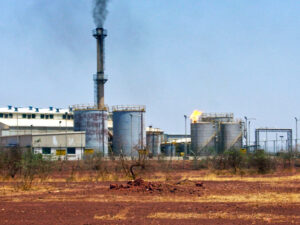Sudanese farmers face great challenges, agricultural season could fail
Farmers in Sudan are facing great challenges that may lead to the failure of the current agricultural season, speakers at the weekly discussion platform of the Ministry of Information said on Thursday.
 Farming in the rainy season (Albert González Farran/UNAMID)
Farming in the rainy season (Albert González Farran/UNAMID)
Farmers in Sudan are facing great challenges that may lead to the failure of the current agricultural season, speakers at the weekly discussion platform of the Ministry of Information said on Thursday.
Engineer Abdelmajeed El Tayeb, representative of the Ministry of Agriculture and Forestry, said that the biggest challenge facing this agricultural season is the high inflation, and the related shortages and high prices of fuel, electricity, fertilisers, and pesticides.
He also stated that the poor use of modern technologies has led to a decline in production.
Fatima El Ameen, Director General of Finance at the ministry, said that plans have been developed together with all Sudanese state governments to increase agricultural production.
She said that farmers in the states suffer as fuel deliveries do not arrive in time and problems occur because of seed storage, as seeds lose their value by 30 per cent when stored for a significant time.
Farms depending on irrigation face additional problems as there is no state-run scheme, making water supply a primarily private industry with competitive prices rather than stable subsidised rates.
Ahmed El Shareef, Director General of the Partnerships Department at the Ministry of Finance and Economic Planning, expressed the department’s commitment to financing the agricultural season.
Serious concerns
In early June, at the beginning of the rain-fed agricultural season, farmers in El Gezira expressed serious concerns about their ability to start cultivating during the June-to-September main rainfall season this year.
Especially lack of state financial support seems to be a problem. Earlier this week, Radio Dabanga reported that funded farming in eastern Sudan ‘decreased by half’ this year.
In the past years, farmers were forced to take loans from the Sudanese Agricultural Bank to prepare for the winter season because the bank's financing of production inputs stopped five years ago, and they have not received any other state support. He expressed his fear that “if the situation continues in this way, there will be no cultivation anymore in El Gezira”.











 and then
and then